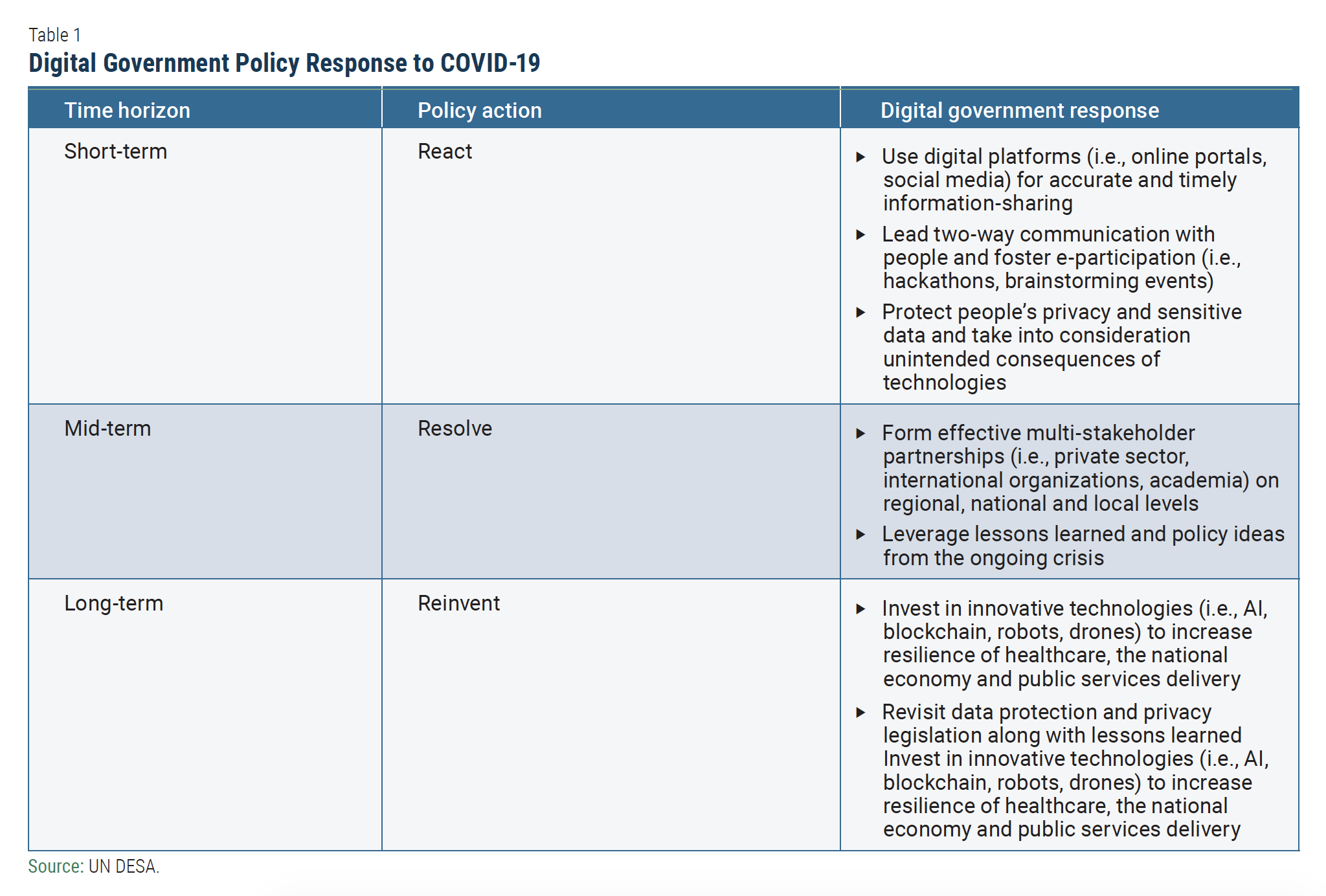UN DESA Policy Brief: “…Involving civil society organizations, businesses, social entrepreneurs and the general public in managing the COVID-19 pandemic and its aftermath can prove to be highly effective for policy- and decision-makers. Online engagement initiatives led by governments can help people cope with the crisis as well as improve government operations. In a crisis situation, it becomes more important than ever to reach out to vulnerable groups in society, respond to their needs and ensure social stability. Engaging with civil society allows governments to tackle socio-economic challenges in a more productive way that leaves no one behind….
Since the crisis has put public services under stress, governments are urged to deploy effective digital technologies to contain the outbreak. Most innovative quick-to-market solutions have stemmed from the private sector. However, the crisis has exposed the need for government leadership in the development and adoption of new technologies such as artificial intelligence (AI) and robotics to ensure an effective provision of public services…
The efforts in developing digital government strategies after the COVID-19 crisis should focus on improving data protection and digital inclusion policies as well as on strengthening the policy and technical capabilities of public institutions. Even though public-private partnerships are essential for implementing innovative technologies, government leadership, strong institutions and effective public policies are crucial to tailor digital solutions to countries’ needs as well as prioritize security, equity and the protection of people’s rights. The COVID-19 pandemic has emphasized the importance of technology, but also the pivotal role of an effective, inclusive and accountable government….(More)”.
